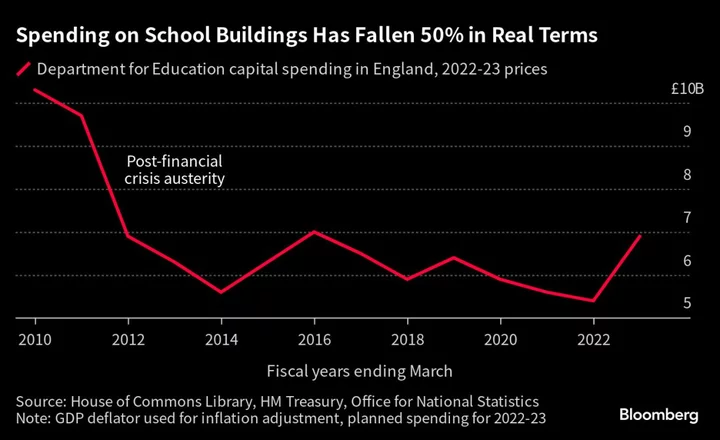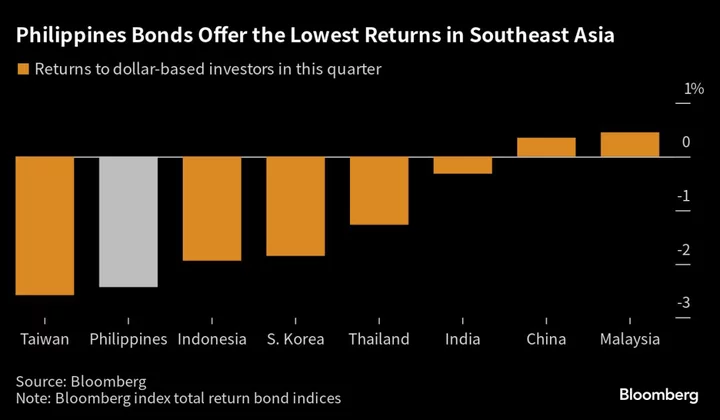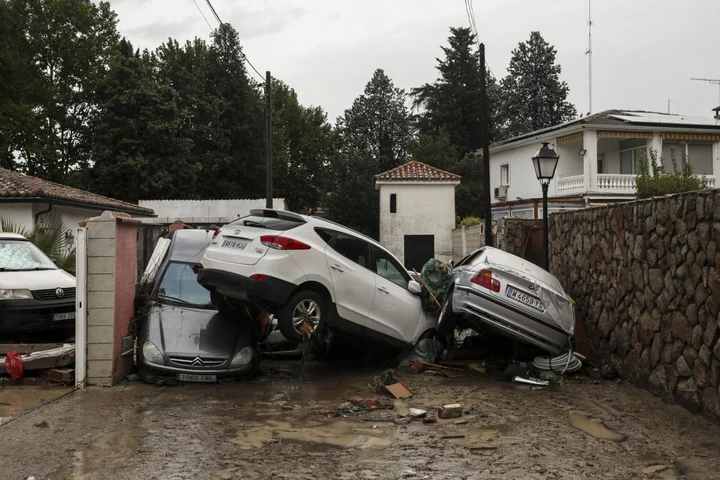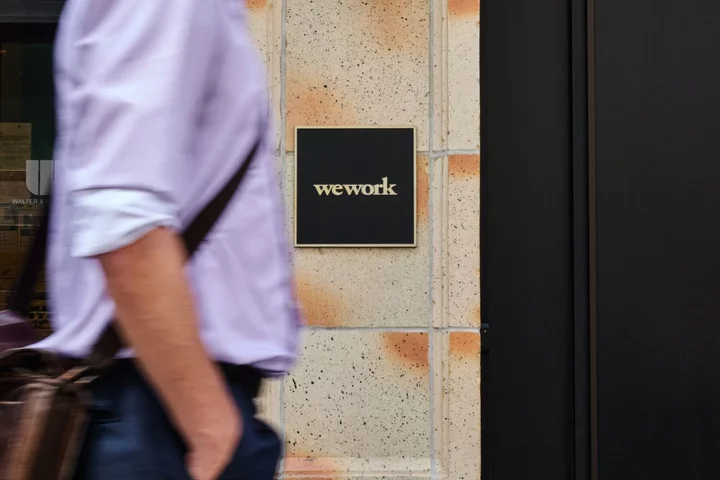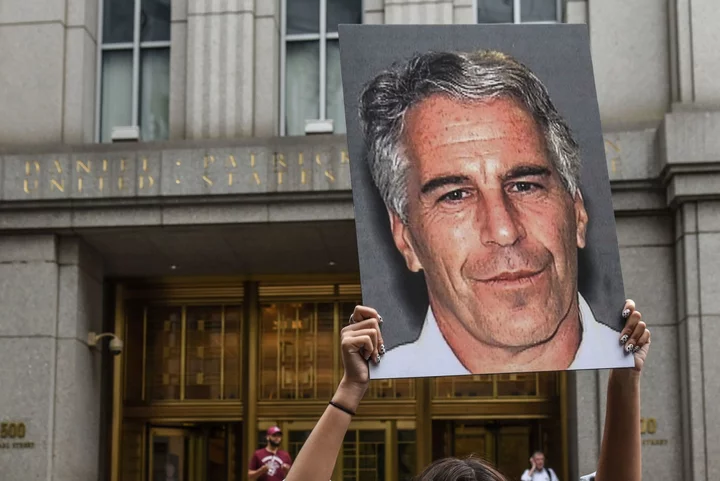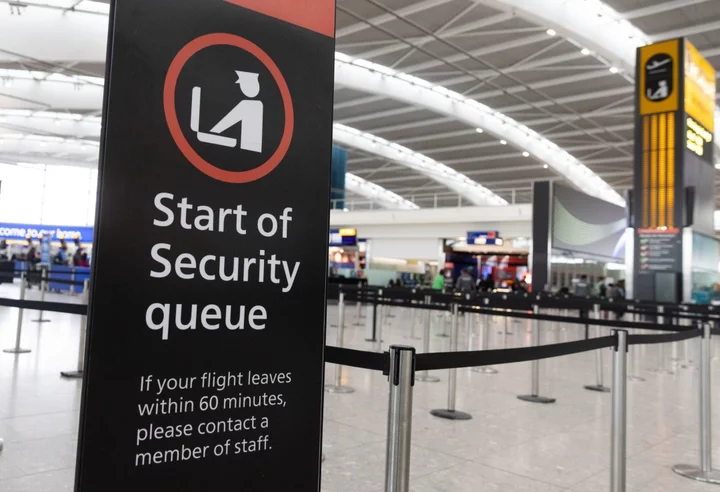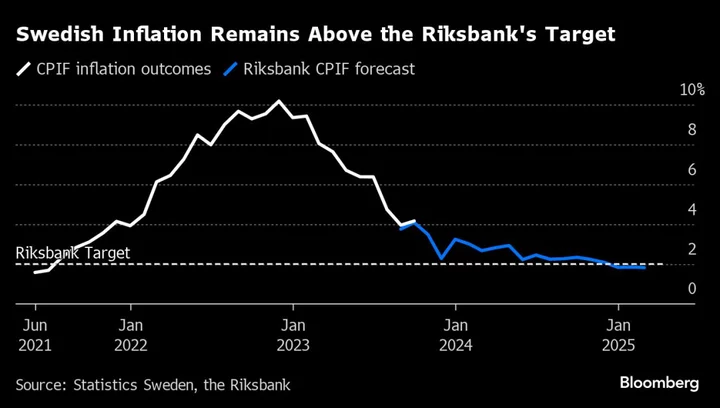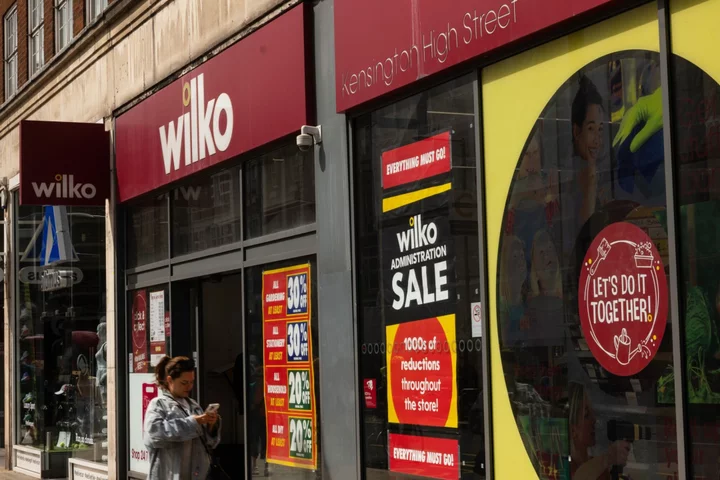Prime Minister Rishi Sunak said it was “utterly wrong” to blame him for the government’s failure to fix crumbling concrete in England’s schools, following an accusation that he approved cuts to rebuilding programs when he was Chancellor of the Exchequer.
Jonathan Slater, top civil servant at the Department for Education from May 2016 to August 2020, told BBC Radio on Monday that Sunak in 2021 had halved the number of schools set to be rebuilt.
Sunak’s Conservative government now faces growing questions over how its funding decisions may have ultimately led to the crisis after more than 100 schools were ordered last week to close buildings because of the risk posed by Reinforced Autoclaved Aerated Concrete (RAAC), with potentially hundreds more affected. Other state buildings including hospitals and courts could also be impacted.
The controversy just days before the start of the new academic year threatens to dominate the political agenda as members of Parliament also return following a summer recess. It undermines government efforts to seize the initiative as Sunak battles to overturn the opposition Labour Party’s commanding lead over the Tories in opinion polls. Keir Starmer on Monday made changes to his top team ahead of a general election expected next year, a move that could reflect the make-up of the next British government.
Slater said that in 2021, the Department for Education had asked the Treasury to at least double the number of schools in a rebuilding program to 200 from 100, but instead it was reduced to 50. The Treasury’s funding decision was made despite warnings of the risk posed to pupils and teachers by RAAC. The roof of a primary school in Kent, southeast England, collapsed in 2018 and an official advisory body — the Standing Committee on Structural Safety — issued a warning in 2019.
Defending his record, Sunak told broadcasters on Monday: “Actually one of the first things I did as chancellor, in my first spending review in 2020, was to announce a new 10-year school re-building program for 500 schools. Now that equates to about 50 schools a year, that will be refurbished or rebuilt.”
Read more: School Buildings in England Ordered to Shut Over Concrete Flaws
But Labour’s shadow education secretary Bridget Phillipson said Sunak “bears huge culpability for his role in this debacle.” She said in an emailed statement: “The defining image of thirteen years of the Conservative-run education system will be children sat under steel girders to stop the roof falling in.”
Spending on school rebuilding in 2019-20 was £765 million ($966 million) but dropped to £560 million in 2020-21 and £416 million in 2021-22, according to the National Audit Office. Sunak was chancellor between February 2020 and July 2022.
Education Secretary Gillian Keegan denied that Sunak was responsible for the concrete crisis, telling the BBC on Monday that a government department would “always ask for more than it is going to get, that’s the nature of public spending.” Since Slater had left the department, the government had been “making sure that we have a really thorough understanding of where there is RAAC,” she said.
A list of schools that are currently being forced to close buildings will be published later this week, and there “could be hundreds” more cases in England, she said.
But Tory lawmakers and officials said Keegan herself was facing internal pressure over her handling of the row.
One official said there was bewilderment in government as to how the education department ended up announcing school closures just days before the start of term. They spoke of internal panic caused by a lack of sufficient contingency planning put in place, evidenced by it posting a RAAC questionnaire for schools on social media on Sunday night.
Keegan’s initial absence from television screens — followed by a belated appearance on Monday morning in which she downplayed the problems — and the lack of information offered by the government on which schools are affected and when they’ll be fixed, also provoked criticism within Whitehall.
One official said it was a failure by multiple departments and successive governments, putting the blame on education ministers, the Treasury and Downing Street for failing to get ahead of the problem.
Sunak and Hunt had hoped to capitalize on a falling inflation rate and an unexpected boost for the government — news on Friday that the economy recovered from the coronavirus pandemic far more quickly than statisticians had previously estimated, and faster than Germany, France and Italy.
Instead, ministers find themselves facing fresh questions over the Conservatives’ handling of public services during their 13 years in power. Labour blames the problem on mismanagement and the years of austerity that saw spending on school buildings in England fall by 50% in real terms between 2010 and 2022.
--With assistance from Andrew Atkinson and Joe Mayes.

